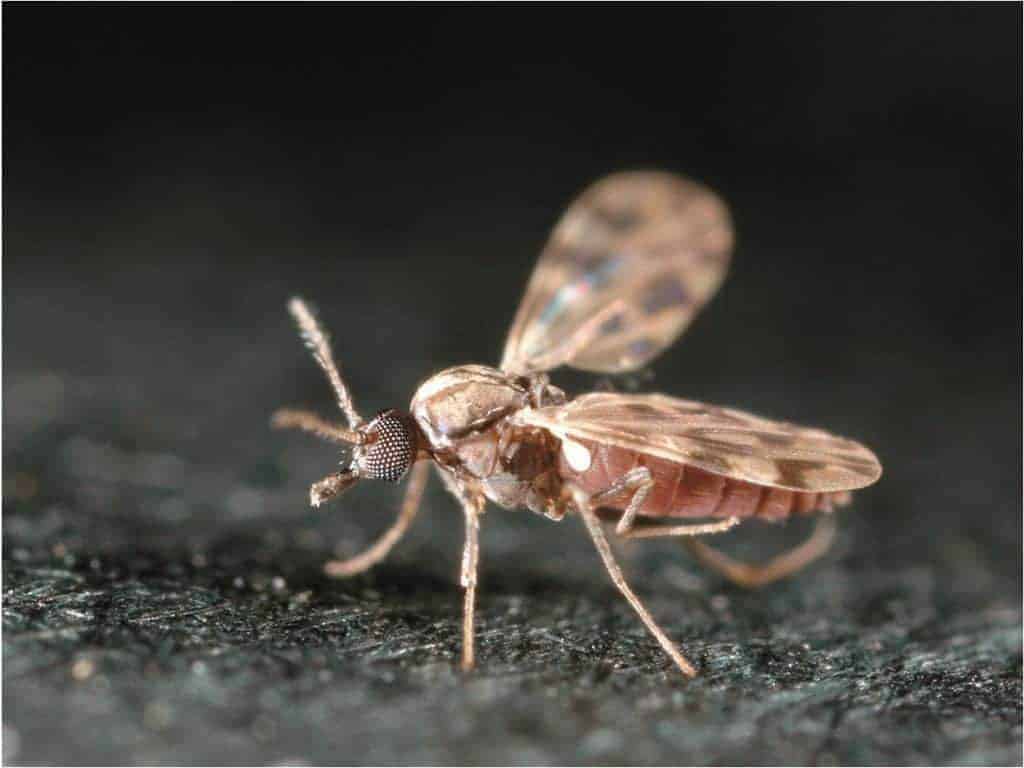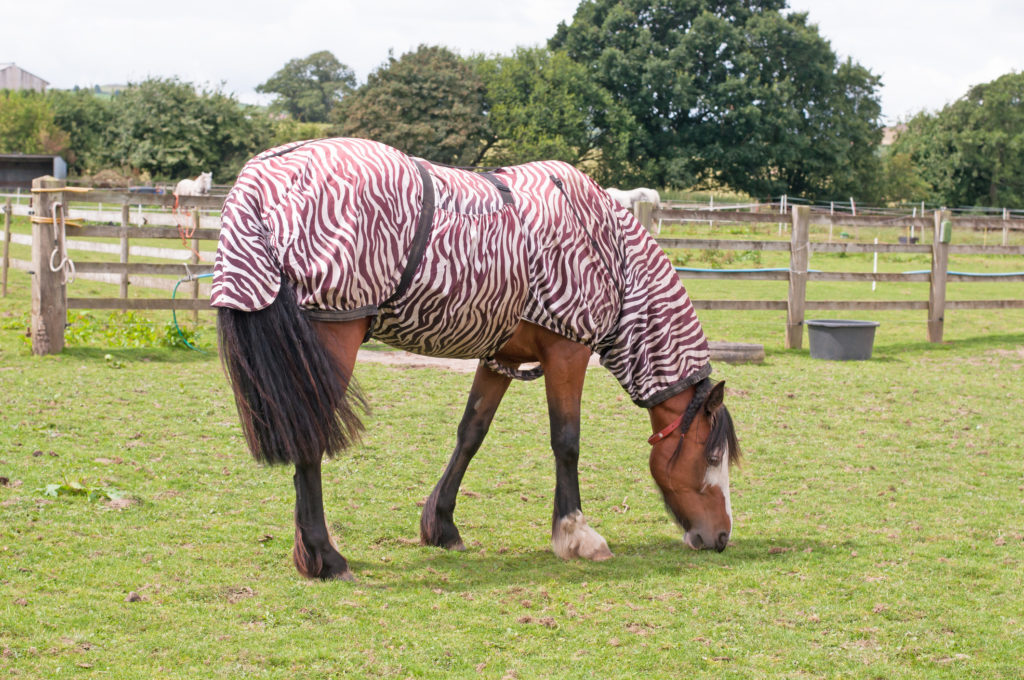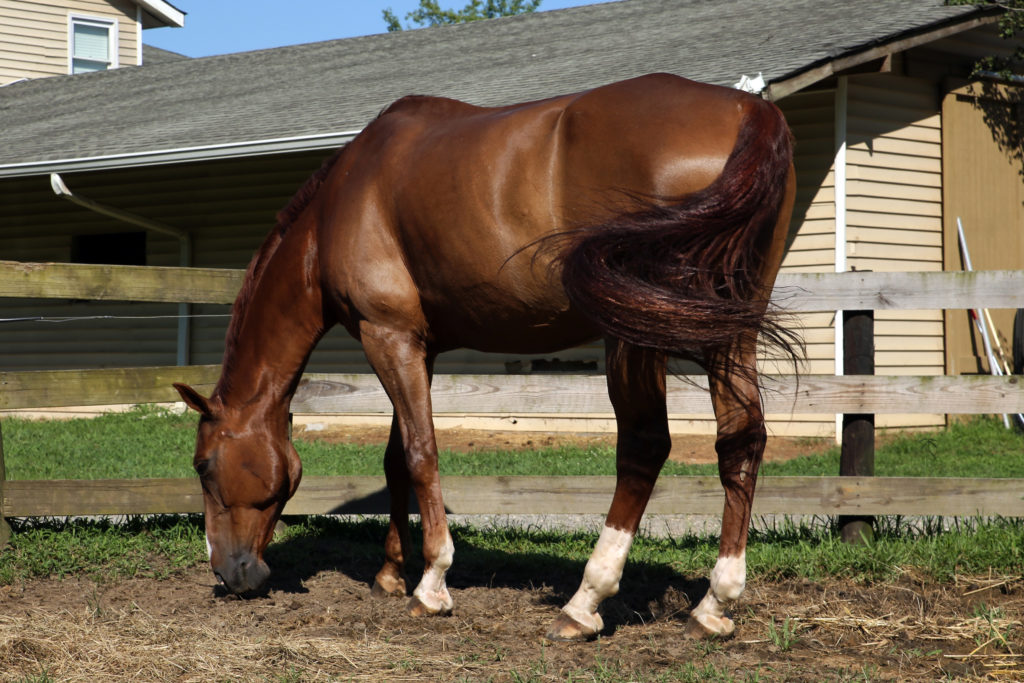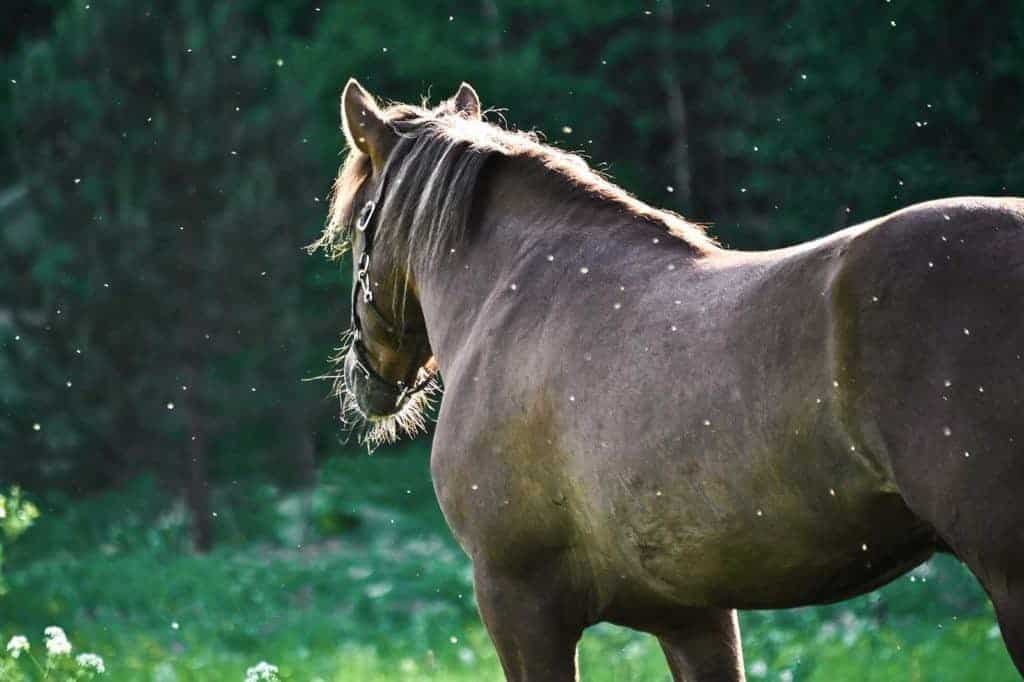
Is There a Fly Spray for Horses That Actually Works?
Dr. Erika Machtinger offers help for owners looking for the right fly spray to protect their horses.

Dr. Erika Machtinger offers help for owners looking for the right fly spray to protect their horses.

Learn which mosquitoes can transmit disease and how to manage populations on your farm.

They might be small, but these flying fiends can spread some deadly diseases.

These pests can transmit a variety of dangerous pathogens, depending on certain factors in your region.

Bugs are beyond annoying for our horses. Insects spread diseases—some of them deadly—and can cause irritating and performance-limiting allergic reactions. Listen as our expert answers questions about protecting horses from mosquitoes, gnats, biting flies, ticks, and more.

Work with your veterinarian to ward off this potentially deadly mosquito-borne disease.

A U.S. Equestrian Team veterinarian who has overseen the shipping of horses to six Olympic Games shares what steps to take before, during, and after a long-distance trailer ride.

Researchers found that, overall, the British owners surveyed had poor awareness of bugs (such as mosquitoes and midges) and insect-transmitted diseases that could affect their horses.

Find answers to questions about equine infectious anemia, Potomac horse fever, parasites, and more.

Dr. Rob MacKay shared presented research on ice boots and cryotherapy for laminitic horses, R. equi and insect bit hypersensitivity vaccines, EPM, and more.

Ten horses in Iran are the first horses worldwide to test positive for antibodies against Schmallenberg virus, which is known to infect ruminants in some parts of Europe.

Researchers say applying targeted insecticides to stable walls and roofs, as well as manipulating midge habitats (such as draining and removal and/or altering breeding sites) can reduce larval and adult populations.

We all know horses use their tails to ward off flying insects. But the mechanics behind that effective tail swatting is intriguing scientists, and it could lead to tail-inspired bug repellent technology.

Not every owner has access to pasture for their horses. Download this free report to learn more about drylots and special considerations for housing horses in pastureless regions.

Learn how rising temperatures and higher rainfall totals might lead to an increased risk of mosquito- and tick-borne disease in horses.

As of August 2018, the invasive Asian longhorned tick has been found in at least one location in Arkansas, Connecticut, Maryland, New Jersey, New York, North Carolina, Pennsylvania, Virginia, and West Virginia.
Stay on top of the most recent Horse Health news with
"*" indicates required fields